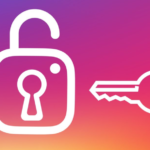Imagine the thrill of effortlessly conversing in a foreign language, the satisfaction of connecting with others through words. But how do you go from stumbling over phrases to fluency?
By uncovering the key strategies successful language learners swear by. From setting precise goals to embracing cultural nuances, each step propels you closer to mastery.
Ready to unlock the secrets that will propel your language skills to new heights?
Setting Clear Language Learning Goals
When setting clear language learning goals, prioritize specificity to enhance your overall progress. Instead of a vague goal like 'I want to be fluent in Spanish,' try setting a specific goal such as 'I aim to hold a 15-minute conversation in Spanish with a native speaker by the end of the month.' Specific goals help you stay focused and motivated, providing a clear roadmap for your language learning journey.
Break down your goals into smaller, achievable tasks. For instance, if your goal is to improve your pronunciation, you can set tasks like practicing specific sounds each day or recording yourself speaking and analyzing areas for improvement. By breaking down your goals, you make them less overwhelming and more manageable.
Regularly track and evaluate your progress. Set aside time to review your achievements, identify areas where you need improvement, and adjust your goals accordingly. Monitoring your progress helps you stay on track and maintain your motivation throughout your language learning process.
Immersing Yourself in the Language
To fully immerse yourself in the language, actively engage with native speakers and consume authentic cultural content. Interacting with native speakers allows you to practice in real-life situations, improving your conversational skills and understanding of colloquial expressions. Seek out language exchange partners or join language meetups to practice speaking and listening.
Additionally, watching movies, TV shows, or listening to music in the target language can help you familiarize yourself with the natural flow of speech and cultural nuances.
Immersing yourself in the language also involves incorporating it into your daily life. Change the language settings on your devices, listen to podcasts or audiobooks during your commute, and label items around your home with their foreign language names. The more you surround yourself with the language, the more your brain will adapt to processing it effortlessly.
Practicing Regularly With Native Speakers
Engaging consistently with native speakers is key to improving your language skills. Regular practice with native speakers helps you gain confidence, improve your pronunciation, and understand cultural nuances.
By conversing with native speakers, you can pick up colloquial expressions, idioms, and slang that textbooks mightn't cover. Additionally, interacting with locals provides you with real-life scenarios to apply your language knowledge, helping you become more fluent and natural in your speech.
To practice regularly with native speakers, consider joining language exchange meetups, finding a language partner, or participating in conversation clubs. These opportunities allow you to engage in authentic conversations and receive immediate feedback on your language usage.
It's important to be proactive in seeking out these interactions and not be afraid to make mistakes. Native speakers are often willing to help and appreciate your efforts to learn their language.
Utilizing Language Learning Apps
Using language learning apps can greatly enhance your language acquisition journey. These apps provide a convenient way to practice and improve your language skills anytime, anywhere. With features like interactive exercises, vocabulary drills, and pronunciation guides, language learning apps offer a diverse range of tools to support your learning process.
One of the key benefits of language learning apps is their adaptability to your individual learning pace. You can progress at your own speed, focusing on areas where you need more practice and revisiting challenging concepts as needed. Additionally, many apps incorporate gamification elements to make learning fun and engaging, motivating you to continue practicing regularly.
Furthermore, language learning apps often offer opportunities for real-time feedback, allowing you to track your progress and identify areas for improvement. Some apps even provide access to native speakers for language practice, helping you enhance your speaking and listening skills in a practical way. By integrating these apps into your language learning routine, you can boost your proficiency and confidence in using the language effectively.
Incorporating Cultural Understanding
As you explore language learning apps and improve your skills, understanding the cultural context of the language you're studying becomes increasingly valuable. Cultural understanding provides insights into the nuances of expressions, gestures, and social norms, enhancing your ability to communicate effectively. By delving into the cultural background of a language, you gain a deeper appreciation for its people and their way of life. This awareness helps you avoid misunderstandings and fosters a more authentic connection with native speakers.
Immersing yourself in the culture through music, movies, literature, and cuisine can significantly enrich your language learning experience. It allows you to grasp idiomatic expressions, humor, and colloquialisms that may not be directly translatable. Engaging with cultural practices also aids in breaking down barriers and building cross-cultural bridges. Moreover, understanding the historical context and societal values embedded in a language enables you to tailor your communication style appropriately, demonstrating respect and empathy towards native speakers. Embrace cultural learning as a fundamental aspect of mastering a language, and watch how it elevates your linguistic proficiency to new heights.
Customizing Your Learning Approach
To optimize your language learning journey, it's crucial to tailor your approach according to your individual learning style and goals. Start by identifying whether you learn best through visual, auditory, reading/writing, or kinesthetic methods.
Visual learners may benefit from using flashcards or watching videos, while auditory learners might prefer listening to podcasts or music in the target language. For those inclined towards reading/writing, practicing through writing exercises or reading books can be effective. Kinesthetic learners may find role-playing or physically engaging activities helpful.
Additionally, consider setting specific, achievable goals to keep yourself motivated and track your progress. Whether it's mastering a certain number of vocabulary words per week or being able to hold a conversation in the language within a set timeframe, having clear objectives can guide your learning process.
Remember to regularly assess what's working well for you and be willing to adjust your approach as needed. By customizing your learning methods to suit your preferences and aspirations, you can enhance your language acquisition journey and make steady progress towards fluency.
Frequently Asked Questions
How Can I Effectively Deal With Language Learning Plateaus or Periods of Slow Progress?
When facing language learning plateaus or slow progress, try mixing up your routine. Engage in different activities like watching films, reading, or speaking with native speakers to reignite your motivation and spark progress.
What Are Some Common Misconceptions About Language Learning That I Should Be Aware Of?
Common misconceptions about language learning include expecting fluency overnight, believing talent trumps effort, and thinking you're too old to start. Be patient, practice consistently, seek help when needed, and embrace the journey.
How Important Is It to Learn Slang and Informal Language in Addition to Formal Language Structures?
It's crucial to grasp slang and informal language alongside formal structures. These elements enrich your understanding and help you communicate naturally. Embrace the nuances to truly master the lingo and connect with native speakers.
Are There Any Specific Strategies for Overcoming Fear or Anxiety When Speaking in a New Language?
To overcome fear or anxiety when speaking a new language, practice regularly, start small with simple conversations, focus on progress over perfection, and remember that mistakes are part of learning. Embrace the process!
What Are Some Ways to Maintain Motivation and Consistency in Language Learning Over the Long Term?
To maintain motivation and consistency in language learning, set realistic goals, create a routine, vary your study methods, practice regularly, seek out native speakers, and celebrate small wins. Stay dedicated and remember your reasons for learning.
Conclusion
So, remember to set clear goals, immerse yourself in the language, practice regularly with native speakers, use language learning apps, understand the culture, and tailor your learning approach.
By following these essential tips, you'll be on your way to mastering lingo in no time.
Keep pushing yourself, stay consistent, and don't be afraid to make mistakes.
With dedication and perseverance, you'll soon be speaking like a pro.
Good luck on your language learning journey!








